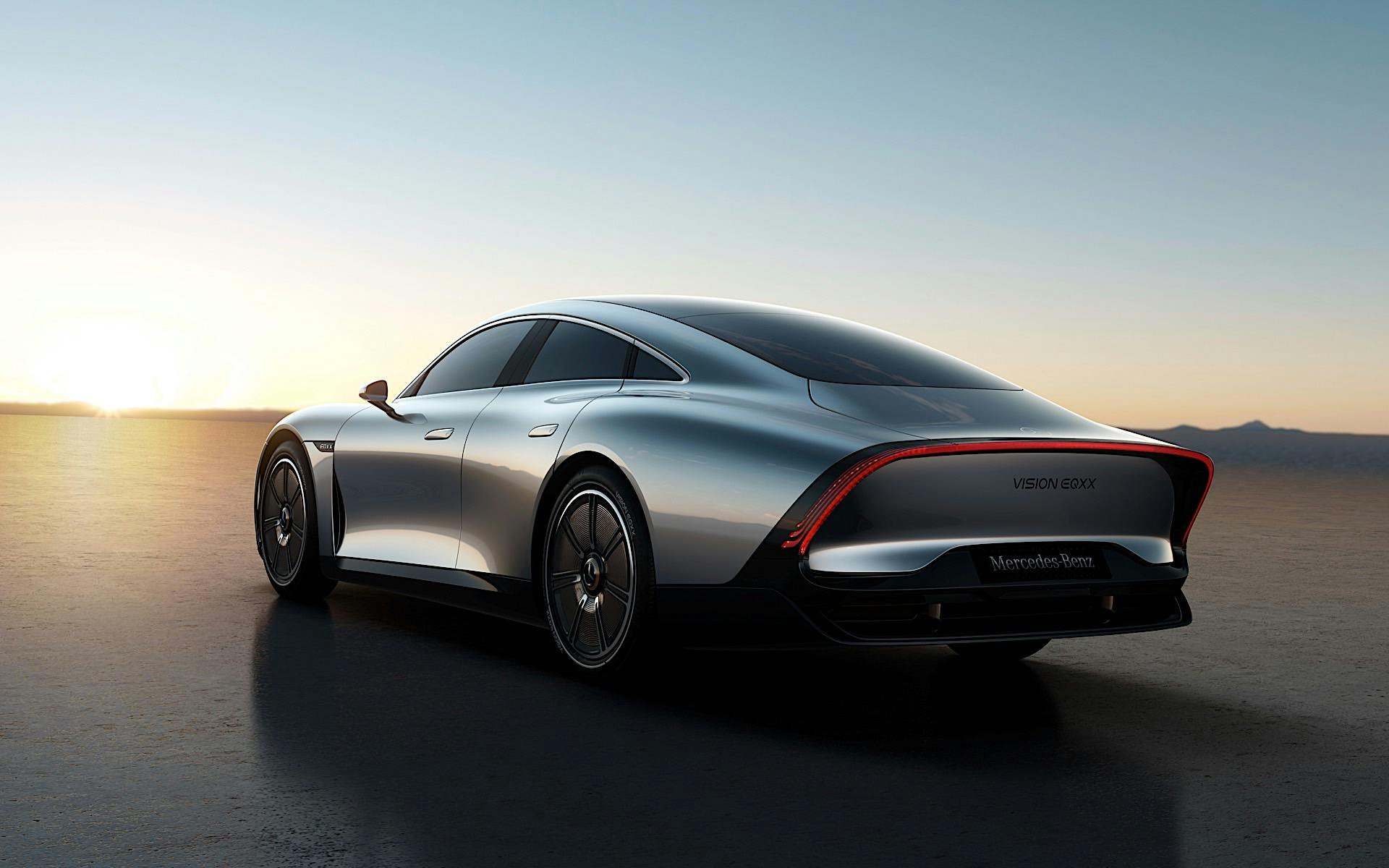Mercedes-Benz plans to manufacture the whole powertrain for its new MMA and MB.EA electric platforms in-house from 2024 and onward. Speaking with Automotive News Europe’s sibling outlet, Automobilwoche, Markus Schäfer, Head of Development at Mercedes’ parent company Daimler, revealed that the company is opting to keep production of its future architectures in-house instead of going to another company. Those partners include ZF Friedrichshafen and Valeo Siemens eAutomotive, which supply components for the EQC and EQS.
“We want to control the overall system of electric motor, battery and power electronics as much as possible, similar to what is the case with the combustion engine,” Schäfer told Automobilwoche. This also includes the inverter, which transfers the energy from the battery to the engine. “Whether we will then also build this ourselves has not yet been decided, however.”
The Vision EQXX gave us a glimpse at what Mercedes’ future electric powertrain could look like at the 2022 CES Show. Without changing the battery capacity, it highlighted how a lighter, more compact battery can be highly efficient. This enables the Vision EQXX to travel up to 600 miles on a single charge. Schäfer noted that the company will need to look at expanding electric powertrain capacity on a global scale as it continues to push for electromobility. He also noted that by 2025, half of the Mercedes-Benz lineup will be either battery-electric or plug-in hybrid. Workers at plants that are heavily dependent on the internal combustion engine will benefit the most as the automaker re-skills its workforce.
Mercedes will codevelop high-performance axial-flux electric motors with Yasa, a British startup that Daimler recently acquired. Radial electric motors for smaller vehicles will be built at Mercedes’ Untertürkhein facility. In-house-developed battery cells are also about to be applied in upcoming Mercedes-Benz vehicles. The company has also announced the construction of four European factories that will be operated with strategic partners. One of those is ACC, which will have stakes owned by Mercedes-Benz, Total, and Stellantis. This will operate two factories, one in Douvrin, France, and a second in Kaiserslautern, Germany. A second production facility is reportedly being considered in Germany.
ACC will be a European battery champion that will certainly need more than two sites,” Schäfer told Automobilwoche. “The important thing is that it ends up being a flexible production network. After all, not just one type of cell will be built for one plant in a factory like this; the facilities have to be variable.” He also added that more battery cell factories are in the works and that Mercedes will announce the construction of another European factory that will be jointly operated with one of its partners. Automobilwoche suspects that this partner is Farasis Energy, a battery cell specialist based in China and an existing partner of Daimler.
Mercedes-Benz’s electrification offensive started with the debut of the EQS sedan last year, the flagship of its EQ sub brand. It will be followed by the EQE sedan, EQA, EQB, EQE SUV, EQS SUV, and the EQT. Both versions of the EQS and EQE are underpinned by the EVA architecture, which has been built specifically for battery-electric vehicles. The EQA and EQB are on convergence chassis shared with the GLA-Class, GLB-Class, A-Class, and CLA-Class while the EQT is essentially an all-electric version of the upcoming T-Class small luxury van. Several upcoming Mercedes-Benz EVs will get AMG and Maybach variants including the EQS and EQE.

